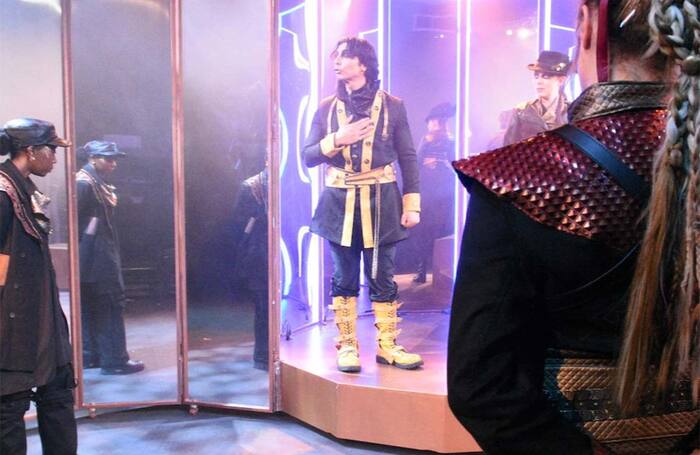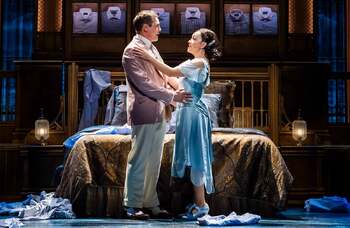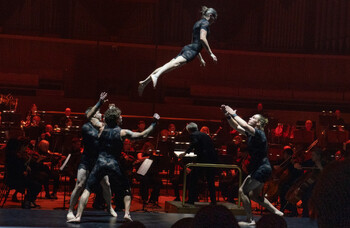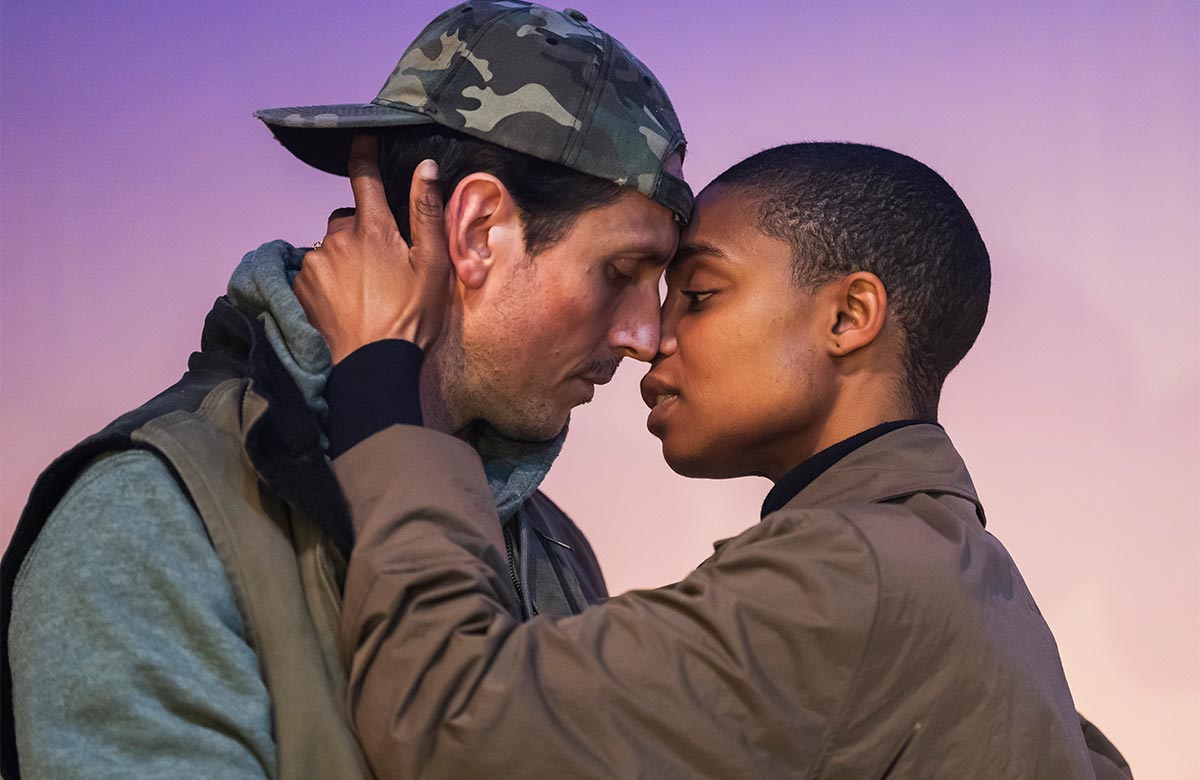Julius Caesar review
Inventive production shifts Shakespeare’s ancient history play into a dangerous digital future
Set in a bizarre cyberpunk future where history repeats itself on the neon-lit streets of Neo-Rome, this is a heavy-handed but pleasingly unconventional take on Shakespeare’s political history. Here, the dictator is nebulously reimagined as a kind of omnipresent digital avatar – albeit one who can still be stabbed to death – whose temporal power is seen as a threat by scrabbling politicians and social media influencers.
Director Max Lewendel’s pacy, hectic production leans into the play’s themes of populism and propaganda, convincingly transposing them to an age of combative, digitally driven public discourse. In our acutely dangerous time of rising authoritarianism, the production confronts uncomfortable questions about online radicalisation.
Continues...
Bold aesthetics do much of the storytelling. Flavio Graff’s set involves a trio of wooden cabinets, which open up to reveal mirrored interiors, effectively creating a sense of a much larger space when combined with multiple screens that frame the stage like a proscenium. Projections, designed by Will Monks, fill these scenes with a kaleidoscopic chaos of glowing lettering and animated line drawings. Portentous images flood the space: floating laurel wreaths, crude portraits of public figures and a cartoon viper striking at the audience. And fully integrated creative captions – developed with consultant Samantha Baines – add greatly to the production’s atmosphere, packaging the play into text-message style pop-ups and deliberately intrusive breaking news announcements.
The cast is sharply uneven, giving heightened and occasionally stiff readings of the unaltered Shakespearean text. Willian Travis’ Caesar appears only in insubstantial projections and although these are slickly integrated, the choice to represent him virtually robs him of the forceful presence the role demands, so the threat that he poses to the Roman people never feels tangible. The pivotal moment of his assassination is especially weak, lacking a visceral quality as Travis’ image gradually pixelates, while physically present actors lurch at a screen with daggers drawn.
Elsewhere, Michael Skellern is strong as a sly, sneering Cassius, unable to conceal his contempt for the easily manipulated masses. Rowan Winter’s gender-swapped Brutus seems fully committed to the plot from the get-go, only falling apart when the consequences of her actions catch up with her. Although she begins the play full of gravitas and confidence, she is visibly diminished by the death of her wife Portia – Gabrielle Sheppard on regal form. And James Heatlie’s Mark Antony has a fierce, unpredictable energy, sometimes every bit the shrewd statesman, sometimes flirting with demagoguery and superstition. The scene in which he confronts Caesar’s assassins provides the play’s strongest sequence, packed with riveting tension and menace. Although Lewendel’s hyperactive, overstuffed production cannot sustain this focus for long, there are enough fun ideas in the mix to ensure it remains engaging.
More Reviews
More Reviews
Recommended for you
Most Read
Across The Stage this weekYour subscription helps ensure our journalism can continue
Invest in The Stage today with a subscription starting at just £7.99













